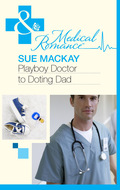Raamatut ei saa failina alla laadida, kuid seda saab lugeda meie rakenduses või veebis.
Loe raamatut: «Practice Makes Perfect»

Practice Makes Perfect
Caroline Anderson
MILLS & BOON
Before you start reading, why not sign up?
Thank you for downloading this Mills & Boon book. If you want to hear about exclusive discounts, special offers and competitions, sign up to our email newsletter today!
Or simply visit
Mills & Boon emails are completely free to receive and you can unsubscribe at any time via the link in any email we send you.
Table of Contents
Cover
Title Page
Chapter One
Chapter Two
Chapter Three
Chapter Four
Chapter Five
Chapter Six
Chapter Seven
Chapter Eight
Chapter Nine
Chapter Ten
Copyright
CHAPTER ONE
As THE taxi-driver stacked the last of her cases on the step Lydia gave him a weary smile and an excessively generous tip, and then watched him out of sight.
Then, and only then, did she allow her gaze to wander lovingly over the familiar contours of the warm red-brick Georgian house.
Home.
She thought she had never been so glad to be back. In the raw wetness of a blustery February afternoon, after a horrendous flight from Calcutta with a long unscheduled stop in Zurich for emergency engine repairs, Lydia felt the icy blast of the wind clean through to her bones, and welcomed it.
A hot bath and a long sleep were definitely what the doctor ordered, she thought with a wry grin, and, slipping her key into the lock, she turned it and leant against the door. Nothing happened. With a slight frown she tried the key again and heard the lock turn, but still the door held firm.
‘Funny,’ she muttered. ‘It must be bolted. Wonder why?’
Abandoning her luggage, she went round the side of the big house and made her way to the kitchen door, casting a critical eye over the garden as she went. What she saw made her frown again, but a sudden slashing downpour worthy of April dragged her attention from the overrun herbaceous border to the more immediate problem of finding a way in—and fast!
Once again, though, she found herself thwarted, and, shivering down into the inadequate layers of her ancient mac, she glared at the door and worked her way back to the front door again, ignoring the plants that thrashed her legs with drenching regularity.
What was going on?
The surgery was in darkness, and peering in through the windows told her nothing—nothing, that was, that she didn’t already know, in other words, Gramps was nowhere to be seen, there was nobody manning the surgery and she was getting wetter by the minute.
One last hope remained, and, tackling the sodden borders again, she struggled round to the other side and rattled the door of the conservatory.
Joy! It creaked open, and then slammed shut with a crash as a gust of wind caught it and snatched it out of her hand.
Breaking the sudden silence that followed, the sound of the rain pelting down on to the glass roof and gurgling in the gutters only served to soothe away the feeling of uncertainty that Lydia experienced.
The wicker rocker was where she had expected to find it, a little damp because of the time of year but still offering comfort to the travel-weary. Snuggling into its lumpy old cushions, she let her eyes drift shut and settled down to wait for Gramps.
Sam gathered up his bag, slammed the car door and made a run for the house, letting himself in by the side-door. He shed his trench coat on the way up to his fiat, and hung it over the bath to drip while he filled the kettle and hunted in the fridge for something quick and easy to eat before evening surgery.
While the kettle boiled he munched on a cold tandoori chicken leg and replayed the messages on his answer-phone.
Mrs Jacobs was wondering if he could fit her in tonight because her waterworks were giving her trouble again and she didn’t think she should wait until Monday; Judith, the district nurse, had flu and would be off for the next few days; the village shop had his order ready and could he go down and collect it before five-thirty—answer: no, because it was now ten past and he had evening surgery in twenty minutes; and young David Leeming had cut his hand and his mother didn’t know if it needed stitching and should she take him along to the hospital or would Dr Davenport be able to deal with it? Dr Davenport never did find out what she had decided, because she was still procrastinating when the tape ran out.
He rang Judith, told her to stay in bed, drink plenty and take paracetomol QDS, which got him a flea in his ear for waking her up to tell her something so obvious. He apologised meekly, promised to call in the morning and hung up, a frown creasing his brow.
With the practice running at full stretch, half the village in the grip of a vile flu bug and the other half falling over on the slush and sustaining fractures, sprains and other less serious injuries in addition to the usual work-load, the very last thing Sam needed was Judith out of the running.
He went into the bathroom, changed places with his mac and showered briskly, towelling himself roughly dry in the kitchen as he made a coffee and rummaged in the fridge again. Coming up with a yoghurt two weeks past its sell-by date, the curled remains of a quiche and a flaccid lettuce, he opted for safety and put the last two bits of bread into the toaster, hung up the towel and dressed quickly.
Unfortunately the toast got stuck. Cursing fluently and sucking his burned fingertips, he opened the window and chucked the burnt offerings out into the rain-swept night, and slammed the window back down unnecessarily hard. It had probably been mouldy, anyway, he thought with weary resignation.
The phone rang—Mrs Leeming had decided that Dr Davenport should be given the dubious privilege of sewing up young David, and she would be bringing him in to the surgery. Would that be all right?
‘Fine. I’ll see when I can fit you in,’ he said a trifle abruptly, and hung up, eyes scanning the kitchen for anything else to eat. He really should have remembered about the village shop. There was nothing fit for human consumption in the entire place—in fact, he doubted that the mice would bother with half of what was left. He hoped it wasn’t an omen—it was his weekend on call.
Giving food up as a bad job, he downed his coffee, made another one and took it downstairs with him.
As usual, going into the consulting-room restored his sense of balance, and he sat in the old leather chair, propped his feet on the edge of Harry Moore’s desk and sighed contentedly.
He had never meant to be a country GP. Hospital medicine—probably cardiology, or neurology, or one of the other prestigious branches—had beckoned, until a chance comment by his father one day had prompted him to investigate the possibilities.
They had been arguing, as usual, about the benefits of education and informed opinion, and his father, one of the old school, who felt that the patient should be kept as ignorant as was humanly possible of the workings of his own body, had turned to Sam with a disgusted snort and told him that the next thing would be that he’d be going into general practice.
Sam had smiled grimly, congratulated his father on an accurate character assessment for once in his life, and stormed out of the prestigious Harley Street consulting-rooms with his pride intact and the seeds of revenge burning in his mind.
By the following day the anger had gone, but the idea remained, and Sam had found, at last, what he had been looking for.
That had been five years before, and now, thanks in part to his father and thanks also to Harry Moore, an old-timer from the other side of the coin, he was here, a country doctor in the best tradition of Richard Gordon, with nearly two and a half thousand patients all dependent on him for their health and welfare. It was a huge practice for one man, covering two villages and their outlying farms, and Harry had talked originally of taking Sam on as a junior partner when he recovered from his illness, but the best-laid plans and all that …
Sam knew it would make sense to take on another partner—had even made noises on the subject to George Hastings, another one-man outfit three miles away, with whom he had set up an on-call rota—but his previous experience had made him very wary. Working alone was best, for him at least, for as long as he could manage it. When he couldn’t—well then, there would be time to think again.
Sam broke from his reverie and went out into the waiting-room to greet the first of the patients.
Almost two hours and fifteen patients later, he locked up the surgery and dispensary, ran upstairs for a warm, dry coat and let himself out into the night.
The rain had stopped a short while before, but the trees were dripping steadily and he turned up his coat collar and shrugged down into its depths. At least the rain had washed away the last of the slush.
His breath misting on the cold air, he headed off down the main street towards the pub, where he bought a portion of hot stew and a jacket potato to take away, declining the offer of a swift half with the old boys in the corner. He really was too tired tonight to do anything but crawl home and go to bed.
As he turned back into the drive he noticed the luggage stacked neatly in the front porch by the main door. Frowning, he crossed the gravel and flicked his torch curiously over the battered cases.
A luggage label caught his eye; juggling the stew, he flipped the label and scanned it with the torch.
‘Dr Lydia Moore.’
That meant only one thing to Sam—trouble, with a capital T.
Sighing heavily, he let himself back in, put the cases in the surgery, stashed the stew and potato in the oven, turned it on low and set about finding the missing woman.
When he had checked all the downstairs rooms he shone the torch through the glass door that led to the conservatory, and blinked in surprise. Snuggled up on Harry’s favourite old chair, with her long dark hair falling like spun silk across her face, was a tall, slender girl, her tanned legs curled up under her, her hand tucked beneath the soft curve of her cheek like a child. Her lashes lay like black crescents against her fine cheekbones, emphasising the delicate structure of her face, and where her coat had fallen open he could see the soft thrust of her breast against the thin fabric of her blouse.
As he watched she shivered and shifted slightly in the chair, murmuring in her sleep.
Squashing the sudden protective urge that arose in him, Sam pushed open the door and ruthlessly shone the torch in her eyes.
Lydia was woken by a fierce light against her eyelids. Blinking and turning her head away, she straightened her stiff neck and sat up slowly, trying to see beyond the beam of light to the person holding the torch.
‘Gramps?’ she murmured.
The torch-bearer lowered the light so that it formed a pool around his feet. She knew he was a man because of the tan leather brogues and the soft greeny-grey of the fine wool trousers, but other than that she could tell nothing—not his height, hair colour, age—nothing.
However, she didn’t think a rapist would be likely to wear brogues, so she rose to her feet, straightened her clothes and held out her hand.
‘I’m Lydia Moore——’
‘I know,’ he said brusquely, and turned away. ‘You’d better come in.’
He led her through the dining-room, out into the hall and through the door at the end into the practice premises.
There he switched off his torch and turned, and she got her first look at this stranger in her grandfather’s house.
He was fairly tall, perhaps six feet, well-built but not heavy, and his thick hair was the colour of polished chestnuts, short and well cut, but rumpled as if he had run his hands through it. One heavy lock had escaped and fallen forward over his eyes, and as she watched he thrust it back with impatient fingers and she was able to see his face clearly.
His mouth was drawn into a tight line, his full lips compressed with … anger? And the hazel eyes, which she guessed were more usually softened with sympathy and humour, were glittering with irritation and—yes, it was anger, and, unless she was mistaken, directed at her.
‘May I ask who you are and why you’re here?’ she enquired coolly, and he gave a short, humourless laugh.
‘Didn’t your grandfather tell you?’
Realisation came with a flash. ‘You’re the locum,’ she said stupidly, and added, ‘I’m sorry, I should have realised, but it’s been a horrendous flight and I was exhausted. Of course, Gramps has talked about you. I hope I didn’t startle you, turning up like this without any warning.’
Oh, I knew you were coming,’ he said enigmatically, and his voice was tinged with bitterness. ‘As for why I’m here, someone had to be, and you were too busy chasing rainbows and playing God to do your duty by a feeble old man——’
‘Feeble? Gramps? Don’t be ridiculous! There never was such a tough old bird——’
Once, maybe, but not recently. Recently he needed you, but where were you? Gadding about in some God-forsaken little mission hospital, saving souls when you should have been here by his side, holding his hand, washing him, changing his sheets, sitting with him through the long hours of the night when the pain became too much, but no, you had to play God in your paddy fields with the natives and let him rot here all alone! Charity begins at home, Lydia—didn’t anyone ever tell you that?’ His voice was shaking with anger, all the more forceful for being held so firmly in check.
‘I’m here now,’ she said furiously, stung by his attitude and shocked by his words, ‘and I’ll thank you to mind your own business!’
‘It is my business!’ he shouted, his iron control slipping. ‘When there’s no one else here that makes it my business! I was here when he needed me—and where the hell were you?’
She drew herself up, and looked him in the eye. ‘Playing God—you’ve said so yourself, at least twice. Well, thank you for your help. I’ll take over now. I’m back for good, so I can run the practice——’
‘Over my dead body will you run my practice!’
They glared at each other across the waiting-room, and slowly his words sank in.
‘Your practice? Since when has it been your practice?’
He let out his breath on a long sigh. ‘Since December. Didn’t your grandfather tell you?’
She shook her head. ‘No. No, he always calls you the locum. Well, recently he’s called you Sam, but he never said anything about your taking over the practice.’
Sam gave a snort of derision. ‘I don’t suppose he thought you’d be interested. After all, you were out there in India with your lover——’
‘He wasn’t my lover!’ she protested, almost amused by the preposterous suggestion.
‘No? What’s the matter, wasn’t he taken in by the innocent-little-girl act?’
Lydia thought of Jim Holden, the doctor whom she had gone to India to help, and she could barely suppress a smile. In his late fifties, widowed for ten years, he was a gentle father-figure, and when he had come back from his leave with the lovely, sweet-natured Anne as his wife Lydia had been only too pleased for him—pleased, and relieved, because Anne was a doctor and so Lydia was superfluous and could terminate her contract three months early and come home to Gramps—because, reading between the lines, all was not well and he needed her. But Jim? She let the smile show.
‘On the contrary, he took it very seriously. He was very protective towards me—not to mention unfailingly polite!’
Sam gave a nasty little smile. ‘You’ll forgive me if I’m not so polite, but, you see, I happen to find your sort particularly odious. Still, I suppose I should be thankful for small mercies. At least you didn’t make the mistake of turning up in time for the funeral and feigning distress.’
Lydia all but stamped her foot. ‘How dare you? I’ll have you know that, when my grandfather dies, not only will I be at his funeral, but my “distress” will be totally genuine!’
‘Very touching, but a trifle misplaced. The funeral was last week. I’m afraid you’ve missed your chance to put on this devastating display of genuine emotion, but never mind. At least you’ve got the house. I imagine that’s what you wanted? Oh, and the practice, but I’m afraid you can’t have that. It’s mine, and, furthermore, so are the premises. He willed them to me. You can contest it, of course, but I doubt if it will get you anywhere.’
He had turned away, straightening a stack of magazines on the table in the corner with an angry thump, and so he failed to see the colour drain slowly from her face. As the meaning of his words penetrated through the fog of her tiredness and confusion she felt shock like cold hands race over her skin, and she started to tremble.
‘What?’ she tried to say, but her voice deserted her and all she managed was a croak.
He turned back to her, a savage retort on his lips, but it died a death as he saw her face, pale with shock, and her wide, sightless eyes that tried to focus on him. Oh, my God,’ he murmured, ‘you mean you really didn’t know?’
At his words she gave a little whimper of distress, and with a startled exclamation he crossed to her and caught her against his chest as her legs buckled.
Her eyelids fluttered closed, and he could see her lips moving, forming the word ‘no’, over and over again. Cursing himself fluently, he scooped her up into his arms and carried her up to his flat, putting her down gently on the sofa.
About the only palatable thing left in the house was the brandy, and he poured both of them a stiff measure and pressed a glass into her hand, curling her stiff fingers around the bowl and urging it to her lips.
She coughed and tried to lower the glass, but he made her take another sip, and then took it from her and placed it on the table within reach. Picking up his own, he downed a hearty gulp and then set it down on the table with hers.
Finally he met her eyes, and the pain he saw there made him doubt all his preconceived ideas about her being a cold-hearted, gold-digging little bitch. She looked lost, afraid, and absolutely desolate, and he felt self-loathing rise up like bile to swamp him.
He knew he ought to apologise, but there weren’t any words he could think of that would make things better, so he stayed silent while she watched him.
Ater a moment she struggled upright and walked over to the rain-lashed window, staring out into the chilly night while she nursed her brandy.
‘How?’ she asked after a long while, and he didn’t pretend not to understand.
‘Cancer,’ he said succinctly. ‘He refused a gastrectomy last October. That’s when I took over the practice. But you know all that——’
She shook her head. ‘No. No, he told me nothing. I knew he hadn’t been well—he told me he had ulcers and that you had taken over just until he was better, but he didn’t say anything about giving up, or … or …’
‘Dying?’ Sam said quietly, and watched as a shudder ran through her delicate frame.
When she spoke her voice was a harsh whisper, a mere thread of sound against the beating of the rain on the glass.
‘When?’
Sam ran his hand wearily over his face. ‘Two weeks ago tomorrow—in the early hours of Saturday morning.’
She shifted restlessly for a moment and then was still again, as if she wanted to run away and was holding herself there by a superhuman effort. ‘Did—did he know?’
‘Oh, yes. I think he knew almost from the beginning. At first he might have thought he had ulcers, but I think he must have realised quite quickly that it was more serious. He went into hospital in October for a gastroscopy, which confirmed it, but he knew it was too late. His actual death was caused by pneumonia, but it was only a matter of days.’ Sam paused, then added gently, ‘He was ready to go.’
Lydia nodded. ‘Yes, I can imagine. He hated feeling ill.’ She swallowed. ‘Where was he?’
Sam closed his eyes, remembering. ‘Here, where he wanted to be. He had a private nurse, but I got a locum in to cover when I knew it was getting close, and I stayed with him then till the end.’
Thank you——’
There’s no need to thank me!’ Sam snapped, much too harshly, and then more gently, ‘I did it for him, to give him dignity, and peace. He was a good man, and I thought the world of him.’
Her shoulders stiffened as the pain knifed through her, and she turned back to him, her soft grey eyes like pools of mist in her grief.
‘I think I’d like to go to bed now,’ she said in a voice brittle with control, and headed towards the door at the top of the stairs which led through to the main house.
‘You can’t sleep in there,’ he told her, ‘the power’s off and the place will be damp and freezing. Have my bed. I’ll sleep here on the sofa.’
He thrust open the bedroom door and flicked on the light. The quilt was rumpled where he had sat on it to tie his shoes, and his dressing-gown was flung over the foot of the bed, but it looked soft and inviting. She nodded briefly.
‘I’ll bring your cases up—I put them in the surgery,’ he murmured, and left her to it.
Lydia sat down on the edge of the bed and stared blindly at her feet. She couldn’t believe that Gramps was gone, that she would never again hear his big, hearty laugh or feel the warmth of his arms around her. He had always been there for her, when everything else had failed her, when her father had gone off and left her and her mother alone, when the pain had become too much and her mother had taken her life—always, through it all, he had been there to catch her when she fell and kiss her better. And now …
She was dimly aware of Sam coming back into the room, of him helping her to her feet and easing off her mac, and then, when she still stood there, taking off her blouse and skirt as well, then pushing her gently down on to the bed and covering her with the quilt.
She was shaking, either from the cold or from shock, and he came back moments later with a hot water-bottle which he tucked into her arms. She thought he smoothed back the hair from her face, but she wasn’t sure because the touch was so light and she seemed disconnected from her body, as if it belonged to someone else.
Gradually her shudders died away and sleep claimed her exhausted mind.
Sam turned off the light, pulled the door to and gave the sofa a dirty look. Pulling pillows and blankets out of the cupboard on the landing, he undressed to his briefs and wrapped himself in the blankets, stretching out as well as he could on the inadequately short two-seater.
By the time he had eaten the stew had been dried up and the potato hard as iron. Hunger chewed at his insides and guilt tortured his conscience.
It had taken him all of ten seconds to realise that he had made a dreadful mistake, that, for all her faults, and he was sure she must be riddled with them, she was not a gold-digger and her distress at her grandfather’s death had been not only genuine but frighteningly deep.
He had been quite worried about her when he had come up with her luggage, but she seemed to be sleeping now. He would have to apologise in the morning for the way he had broken the news to her, but he really believed she should have had his letters, the first telling her to come home to her grandfather, the second informing her of the date of the funeral.
He shifted on to his back, propped his legs on the table and crossed his arms over his chest. She still should have been here! She should have realised that he was ill and needed her. Damn it, day after day the old man had asked for her! If Sam had only realised that she hadn’t known he would have sent for her sooner.
The moon broke through a hole in the clouds and tracked steadily across the sky, and Sam lay and watched it, and wondered why old Dr Moore hadn’t told Lydia that he was dying.
He woke suddenly when the room was still in darkness, and lay for a moment wondering what had disturbed him.
Then he heard it again, a thin, high moan, an animal keening that cut through him to the bone.
Untangling the blankets, he stumbled off the sofa and into the bedroom, but it was empty. The sound came again, and he followed it downstairs and into the surgery.
He found her, curled into a ball on the old leather armchair at the desk, with her arms wrapped tightly round a cushion, rocking gently back and forth while the terrible sound of grief was torn from her throat.
Her eyes were dry and sightless, and she ignored him as he lifted her from the chair and sat down with her cradled against the broad expanse of his chest. She was wearing his dressing-gown but still she was shivering, and he hadn’t taken the time to pull on any clothes, so he stretched out and turned on the electric heater. It could be a long night.
Then, holding her close, he rocked her, brushing the hair from her eyes and pressing his lips to her crown as if he could take away the pain.
He could feel the tension building in her, and then suddenly the dam burst and the tears came, accompanied by huge, racking sobs that gradually died away to leave her spent and weak against his shoulder. She slept then, relaxed into the curve of his arms, and he stayed where he was, holding her quietly, until the dawn lightened the sky.
Then she stirred and sat up, embarrassed and bewildered, and he smiled slightly and let her go.
‘I—I’m sorry, I didn’t mean to disturb you. I couldn’t sleep. I just felt…’ Her hands fluttered helplessly for a moment before she clamped them together, ‘I wanted to be near him.’
‘I know. Don’t apologise, I often feel the same. Would you like a cup of tea?’
She nodded. ‘Please. I think I’ll just wash my face—perhaps I’ll feel better then.’
He led the way upstairs, and while she cleaned up he put the kettle on and pulled on his jeans and a jumper, suddenly conscious of his scanty attire.
When she emerged from the bathroom, her face pink and scrubbed, her hair brushed and tied back in a pony-tail, and looking about seventeen, he was shocked to feel himself respond to her.
Technically speaking, she was a scrawny little thing for all her height, weighing next to nothing, her face too small for those ridiculously large eyes, her mouth full and soft and vulnerable, and yet he wanted her. His dressing-gown was wrapped tightly round her slim frame, the belt accentuating her tiny waist. He was sure he could span it with his fingers, and his palms tingled with the need to cup the soft jut of her breasts in his hands. She should have looked ridiculous, but there was something about her, her quiet dignity, the graceful way she moved those absurdly long legs as she walked towards him, that lifted her above criticism and made her beautiful. Sam felt the unbidden surge of desire, mingled dangerously with the urge to protect and nurture, and when their eyes met it was as if she saw right through him, and he felt ashamed.
Tea,’ he said economically, and thrust a mug into her hand, taking his and standing by the window.
She sat down among the tangled blankets and sighed.
‘I’m sorry you had to sleep on this; it can’t have been comfortable,’ she offered, and he shrugged.
‘I’ve known worse. Don’t think about it. You needed the bed more. I’ll put the heating on in the house today and get it aired for you. You can sleep in your own bed from tonight.’ He turned to face her, and found himself trapped again in the clear grey pools of her eyes.
‘I’m sorry about your grandfather,’ he apologised, dragging his eyes away from hers with difficulty. I didn’t realise you hadn’t got the letters. I suppose the post is a little primitive?’
Her mouth lifted in the beginnings of a smile. ‘Something like that. And the clinic is mobile, so that makes us even harder to find. We only got the Christmas cards last week!’
Sam’s shoulders sagged. ‘I’m sorry, I—I would never have told you like that.’
She lifted her hand. ‘Please, don’t worry. It really doesn’t matter. The end result would have been the same.’ She fiddled with the belt of his dressing-gown for a moment, then looked up. ‘Is his car still in the garage? I’d like to go——Is he buried——? Oh, hell!’
She fumbled in the pockets, and Sam thrust a handful of tissues into her hands and waited while she pulled herself together.
‘He was buried in the churchyard. If you can hang on until after surgery I’ll take you later, but first I have to go down to the village shop and get some food in before I can offer you breakfast.’
She nodded, and drained her tea. ‘Do you mind if I have a shower?’ she asked.
He glanced at his watch. ‘No, do it now. The water’s hot. I’ll go and sort out the heating in the house.’
He disappeared through the door on the landing, and Lydia stayed where she was for a moment, nursing the still-warm cup and trying to sort out her feelings.
He had been so foul to her last night—understandably, really, if he had thought that she had come back just to claim her inheritance. And yet today he was patient, kind, understanding … She could see now why Gramps had spoken of him in such warm words, almost as if he were the son her father had failed to be.
Which brought her to the next problem.
Sam came back into the room, and she voiced her thoughts almost unconsciously.
‘How long do you think it will take you to find another practice?’
Tasuta katkend on lõppenud.









